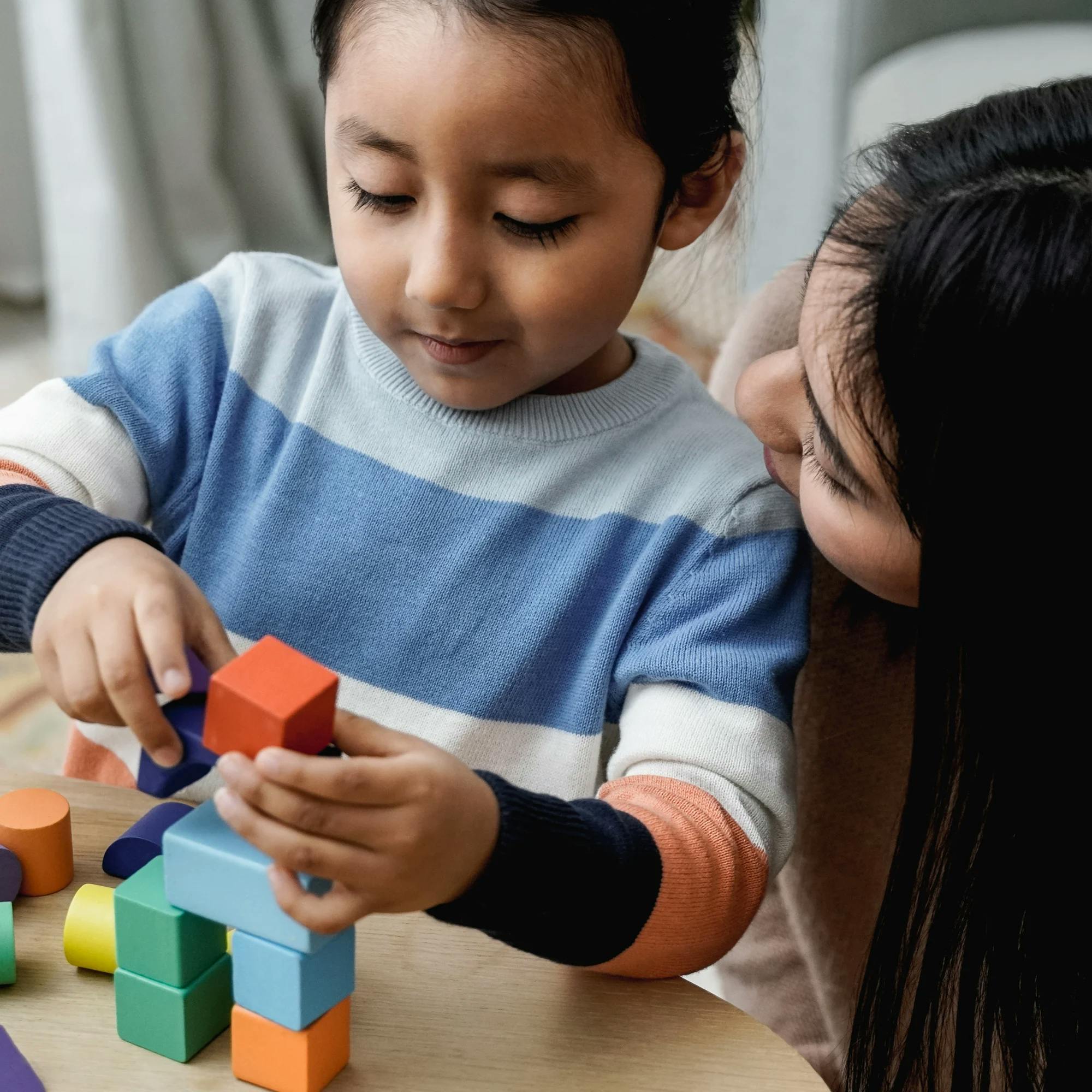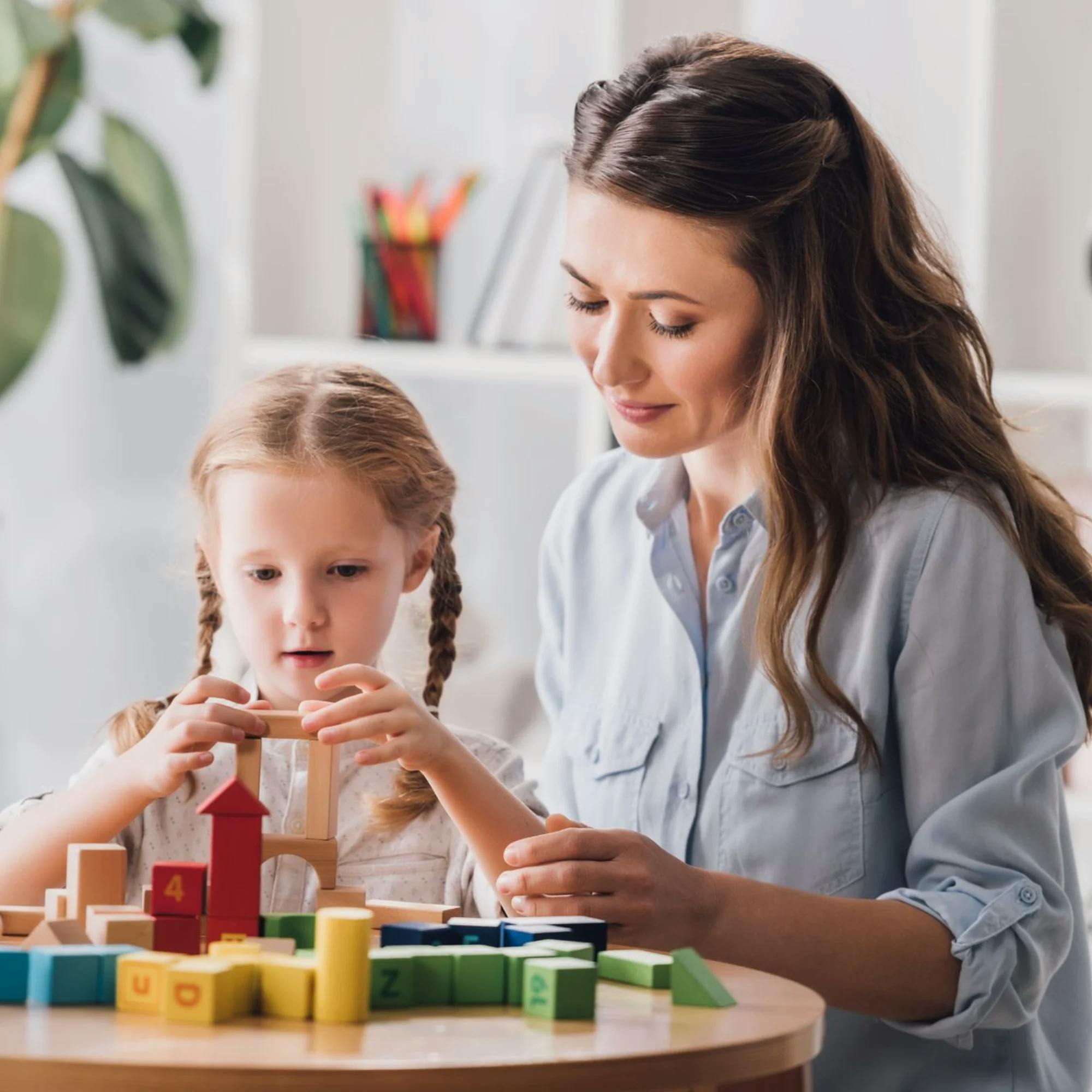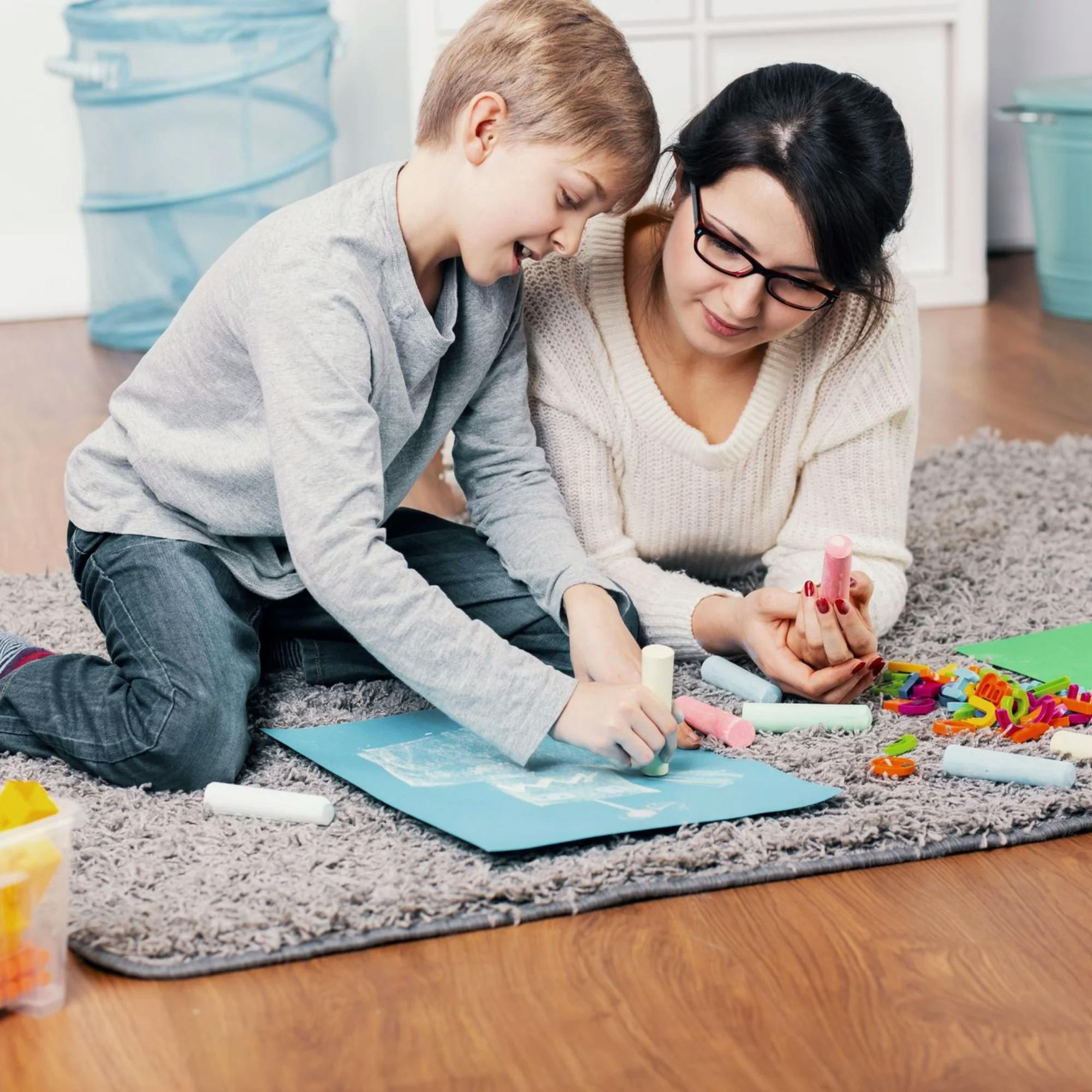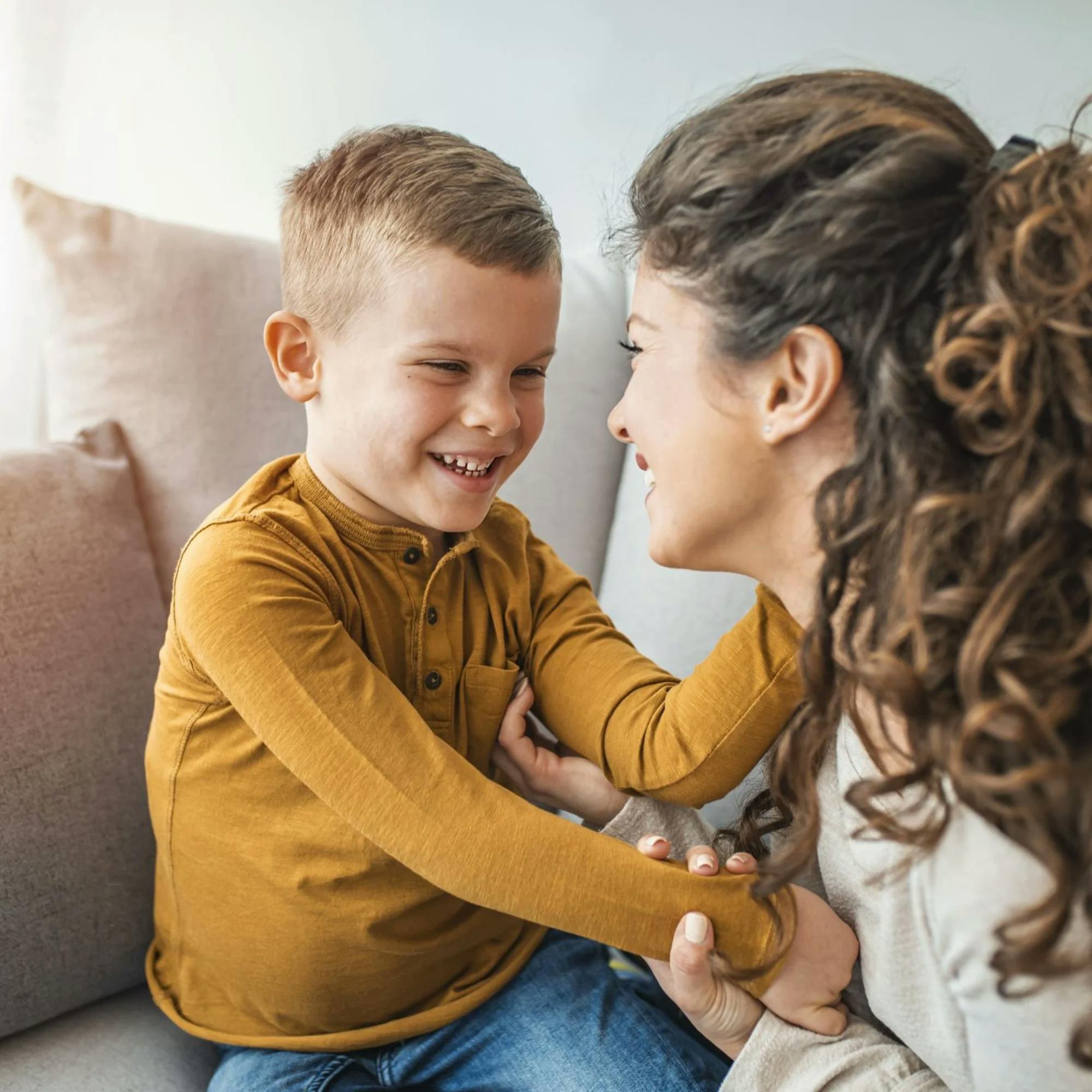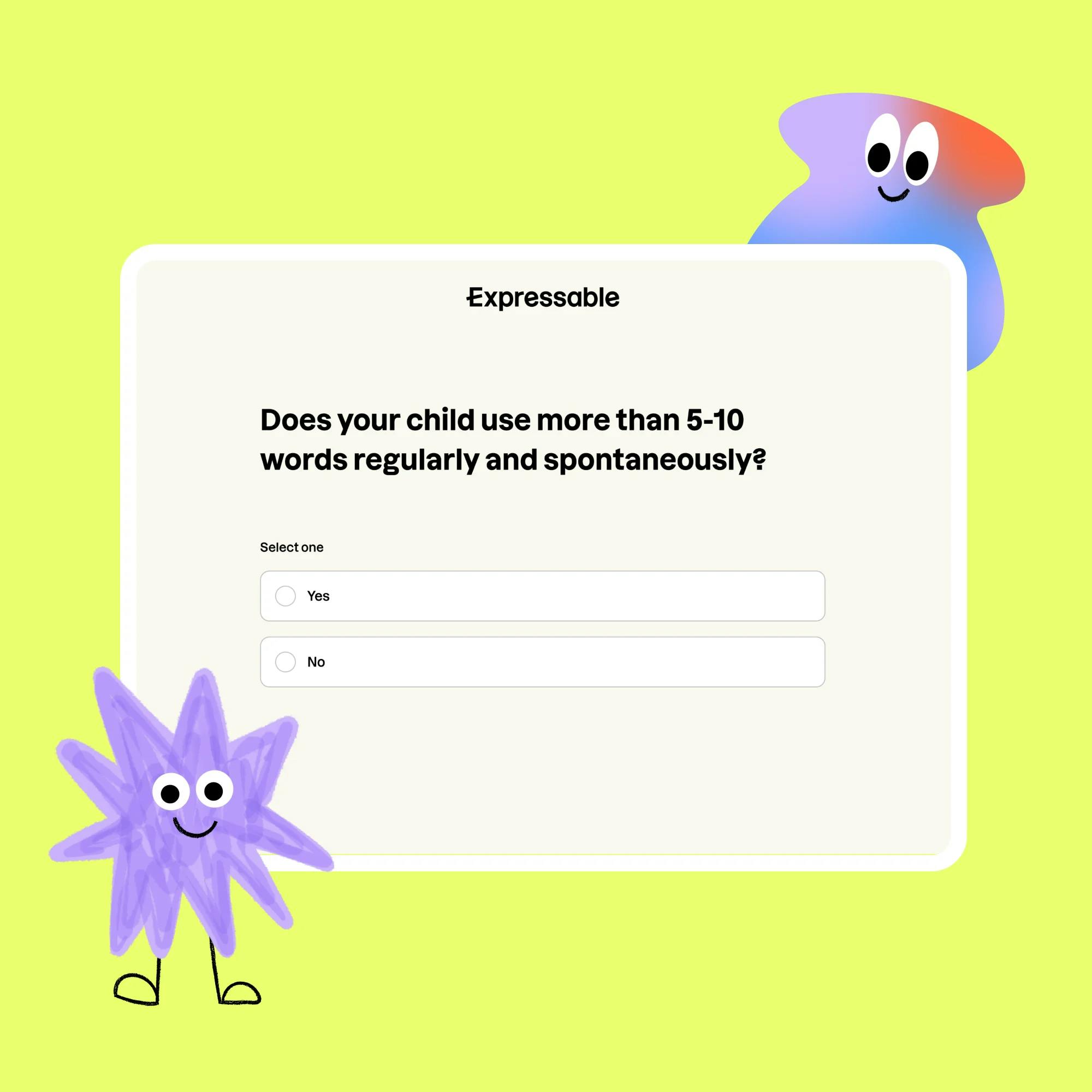“Echolalia” refers to repeating words that someone else says. Some children use echolalia often in their verbal communication.
Echolalia can be helpful and meaningful for the kids who use it. But if a child is struggling to communicate clearly, speech therapy can be useful. A speech therapist can help a child who uses echolalia to better express themselves.
Read on for our expert guide to echolalia: what causes it, its connection to autism, examples of echolalia, and how to help a child with echolalia.
Is your child on track?
Take our free screener to learn more about your child's development and whether a speech evaluation is recommended.
 Screener for children
Screener for childrenWhat is echolalia?
Echolalia happens when a child repeats words or phrases they’ve heard, either immediately or after a delay.
It’s important to know that it’s normal for toddlers to repeat words. As their communication skills improve, most children will begin to form their own phrases. By about age 3, kids are typically making up their own simple sentences, and you shouldn’t hear much repeating.
However, some children continue to only repeat phrases others have said, without using their own new sentences. Their language development looks a little different than what’s typical. Instead of starting to talk using single words, they use multi-word “chunks,” or phrases, called gestalts. Often these gestalts are echolalia, meaning the phrases are repeated from a TV show, video, or a familiar adult. Kids who speak this way are called gestalt language processors.


Examples of echolalia
Immediate echolalia
If a child is using echolalia, they may repeat what you say right after you say it. This is called immediate echolalia. For example, if you ask them, “Do you want some juice?,” they may repeat, “Do you want some juice?” In echoing your words, they may be trying to communicate that they do, in fact, want juice.
Delayed echolalia
Gestalt processors may also repeat phrases they’ve heard, such as from their favorite TV show or song, much later after hearing them. This is called delayed echolalia. The child is using these phrases in a meaningful way, even if at first it doesn’t make sense to us!
Here’s an example of delayed echolalia. A child may skin their knee and say, “I have a diagnosis!” This comes from the TV show Doc McStuffins, where the character says this phrase when an animal is hurt and needs care. So your child is correctly associating that phrase with being hurt and needing help, even if the exact words may not make sense in the specific situation.
Internal echolalia
Some people also experience a form of echolalia called internal echolalia. This type of echolalia involves the repetition of words or phrases, but it occurs silently or internally, without being said out loud. For some autistic people, internal echolalia can be a normal part of cognitive processing or serve as a way to self-regulate.
What causes echolalia?
Repeating words is a normal part of early language development, especially in toddlers learning to talk. At this stage, repeating what they hear helps them practice sounds, build vocabulary, and understand how language works.
However, echolalia can also occur when a child has difficulty using language independently, or on their own. In children with speech or developmental delays, including autism, echolalia may be a way to communicate when forming their own sentences feels challenging.
Echolalia can serve other purposes, too. Some children use it to self-soothe, process information, or express their needs using familiar scripts they've heard before.
Remember that echolalia does not always mean autism. However, it is common to see echolalia, especially persistent echolalia, in autistic children. Echolalia can also be present in children with ADHD.


Can children grow out of echolalia?
Many children grow out of echolalia, especially when it’s part of typical language development. In those cases, “growing out of echolalia” means the child is simply continuing in their language growth. As we’ve mentioned, repeating words and phrases is a normal step as toddlers learn to talk. As their language skills mature, echolalia usually goes away on its own.
Echolalia is often seen in autistic children. For these kids, echolalia can be part of their communication for a longer amount of time. However, with speech therapy and the right support, autistic children can learn to use language more flexibly and clearly.
Are there benefits to using echolalia?
Echolalia can be helpful. For some children, it serves as a coping mechanism, or a way to calm themselves. It’s also a step on the way to using more flexible language. Using gestalts and echolalia isn’t just meaningless repetition, even if we don’t fully understand what the child is trying to say. Echolalia gives kids a way to interact with others.
When children use echolalia, they often don’t understand the meaning of each word individually. They associate a meaning with the phrase as a whole. Your child may use echolalia to:
Ask for things
Answer questions
Start an interaction
Take turns
Say yes or no
For example, a gestalt language processor might say, “Which story do you want to read?” when he realizes it’s time for bed. He knows this phrase is related to bedtime, but he doesn’t necessarily understand the meaning of each individual word.


How to help a child with echolalia
Speech therapists can treat children who use echolalia. Working with a speech therapist is the best way to get individualized support to help your child communicate more clearly.
There are a few strategies for echolalia that a speech therapist might recommend. For example, they may suggest modeling phrases from your child’s point of view, as they would say it. So you might say “I found my race car!” instead of saying “Do you see the race car?” or “You found your race car.” That way, your child can learn how to say it from their own perspective.
The most important thing is to follow your child’s lead, rather than asking lots of questions or giving too many commands.
Another way to help children who use echolalia is to focus on the meaning behind what they’re saying, rather than the specific words they’re using. Try noticing what your child is doing, how they’re feeling, and what they’re paying attention to when they use certain phrases. This can give you clues about what they mean, even if it's a little different from their actual words.
The most important thing is to follow your child’s lead. This can be hard! But it’s better to let your child lead rather than asking too many questions or giving them too many commands. Following their lead can help you better understand each other and support relationship-building and communication.
Find the right speech therapist for your child
We'll match you with a licensed speech therapist who's experienced in your child's needs and available when you are.
 Get started
Get startedGet expert help for echolalia with speech therapy
It’s important to remember that we all communicate differently. Echolalia isn’t necessarily something to stop. Rather, we want to help kids grow and shape their echolalia into meaningful, clear communication.
If you think your child needs language support, the first step is to schedule a speech and language evaluation. The speech therapist will evaluate your child’s current communication strengths and differences, then build a treatment plan to help them become the most effective communicator they can be. Your speech therapist will also partner with you and teach you how to practice communication skills with your child at home. Family support helps kids make even faster progress.
Click here to get matched with a speech therapist who has experience treating children who use echolalia.


Diagnosing echolalia with autism
If your child is using echolalia and you’re noticing other signs of autism, talk with your child’s pediatrician. They may recommend both an autism evaluation and a speech therapy evaluation.
Autism is a complex condition that affects every child differently. However, some signs of autism in children may include the following:
Slow to respond to their name or other attempts to gain their attention
Uses behaviors like temper tantrums to communicate
Uses a monotone speaking voice that lacks inflection or intonation
Appears to be in their own world and lacks eye contact
Has strong reactions to sensory stimuli, such as being sensitive to loud noises or refusing to eat food with certain textures
Using echolalia can be a meaningful step in an autistic child’s communication development. A speech therapist can support you and your child as they learn to shape echolalia into more flexible language. Learn more in our guide to speech therapy for autism.
FAQs about echolalia
1. What is echolalia? Echolalia happens when a child repeats words or phrases they’ve heard, either immediately or after a delay. They may do this to express their needs, process information, or calm themselves.
2. Does echolalia always mean autism? Echolalia can be a part of typical early language development. Autistic children often use echolalia, but that doesn’t mean every child who uses echolalia is autistic. If you’re concerned about your child’s communication, take our free online screener to see if a speech evaluation is recommended.
3. Can children grow out of echolalia? Many children grow out of echolalia, especially when it’s part of typical language development. For autistic children, echolalia can be part of their communication for a longer amount of time. However, with speech therapy and the right support, autistic children can learn to use language more clearly. 4. How can a speech therapist help my child with echolalia? A speech therapist can help your child learn to shape echolalia into more flexible language. After an evaluation, your therapist will develop a treatment plan that’s tailored to your child’s needs.
How Expressable Can Help
Concerned your child isn't reaching age-expected milestones? Looking for communication support from a professional? Expressable is a national online speech therapy practice serving children and adults. We treat all major areas of communication and feeding, offer flexible hours including evenings and weekends, and accept most major health insurance plans. We’re proud to have earned more than 3,000 5-star reviews from our clients (4.9/5 average).
Our therapy model is centered on parent and caregiver involvement. Research proves that empowering caregivers to participate in their loved one’s therapy leads to better outcomes. That’s why we combine live, 1-on-1 speech therapy with personalized education and home practice activities for faster progress.
Communication is more than words. It’s how we share how we feel and show who we are. We’re here to help you or your child do just that.
 Alexis Irazoque, M.S., CCC-SLP
Alexis Irazoque, M.S., CCC-SLP